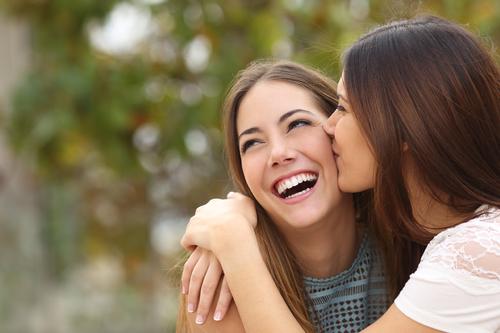16 Dec 2014
'Everyone needs a daily dose of touch,' says touch doctor
BY Helen Andrews

A cuddling shop has opened in Oregon, US, charging US$60 (€48, £38) for an hour of hugging – highlighting the potential for the spa industry to cash in on physical contact.
The shop, called Cuddle Up To Me, is located in Portland. It offers hour-long sessions of platonic touching that includes hair strokes, hand-holding and a range of different cuddle positions. Sessions are filmed to ensure the safety of the cuddler and the cuddled. Clients sign a waiver agreeing they will be clean, courteous and will keep their clothes on. Founded by Samantha Hess, in November, she says that the business is in no way adult-oriented.
Massage therapy and platonic touching are becoming increasingly popular ways to de-stress and calm the nervous system, according to Tiffany Field PhD – director of the Touch Research Institute at the University of Miami/Miller School of Medicine.
Touch deprivation can lead to aggression, depression, pain and health problems according to Field – writing in The Guardian. “An extreme example of touch deprivation can be seen in orphanages where children who receive less physical affection fail to thrive and are developmentally delayed,” said Field.
The benefits of touch therapy, studied by Field, have included reductions in aggression, decreased prenatal depression and lower pain in people with arthritis, fibromyalgia, back pain and headaches. “It also leads to an increase in the neurotransmitter dopamine, which can explain why there is less aggression in cultures that are more physically affectionate, such as France compared with the US,” added Field.
One study conducted by Field and her team, compared the way parents touched their small children in playgrounds in Paris and Miami and how adolescents touched each other in McDonald’s restaurants in those same cities. The French children received more physical affection from their parents and were reportedly less physically and verbally aggressive towards their peers in the playground than the children studied in the US. The French adolescents were also more physically affectionate towards each other than the US adolescents.
Field laments the way policies enacted to protect children from bad touch have created a culture of fear, especially in the US. While child abuse still occurs, “adults in the US sue each other for harassment following even accidental touch and as a result of all this, people are afraid to touch each other,” said Field.
Another study gave elderly people the opportunity to massage infants. These older volunteers’ stress hormones decreased and after a month they needed fewer doctors’ appointments, according to Field.
“Touch calms the nervous system, which lowers blood pressure as well as stress hormones, which in turn mean that immune cells can survive,” said Field. Touch therapy therefore makes us healthier.
“We can also experience less pain and depression as the body's natural pain killer, serotonin, is also its natural antidepressant and this increases following massage therapy,” said Field.
Close Window